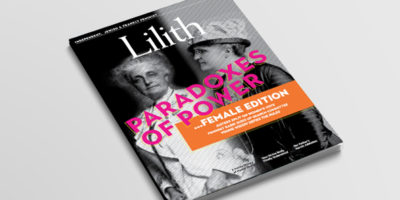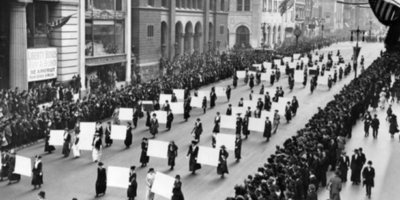Anti-Semitism and Ivanka
Tired of reading about Ivanka Trump? So are we. But you don’t want to miss this analysis. Because I work for my campus newspaper, I received an email ranting about universities and their stifling political correctness, spewing racist claims against immigrants and railing against Muslims. Several paragraphs in comes this: “[political correctness] says we are not supposed to notice Jewish power even though Jewish Power rules America.”
The idea that “Jewish power” secretly controls governments and political movements is an old and noxious trope, classic anti-Semitism. It’s often easy to recognize—my emailer was upset about the purported “divide-and-rule by Jewish elites.” Sometimes, though, context masks this sentiment: for example, Ivanka Trump.
CNN published a profile of Ivanka Trump that focused on her Jewish observance, titled “Ivanka Trump: America’s Most Powerful Jewish Woman.”
While there was significant backlash around the accuracy of the headline, its more basic problem went unaddressed. To ask who is the most powerful Jew in America fundamentally trades in anti-Semitism.
The article’s introduction includes this: “Ivanka is arguably the most powerful Jewish woman in America today, someone who has long had a special influence on her father (though doesn’t always win him over) and is now settling in as an unpaid adviser to the President.” The image of the country’s most powerful Jew, whispering in the ear of the government’s leader, could be ripped from an anti-Semitic cartoon.
Of course Ivanka is not the most powerful Jewish woman in the country. But the “power” that CNN attributes to her is the power that Jews always have in anti-Semitic imaginings: a secretive influence. Ivanka is not the most powerful Jewish woman, but she’s the woman who has power in the most Jewish way.
How has the deep anti-Semitism of CNN’s framing gone unaddressed? Well, after all, “Jewish woman” is not the same as “Jew.” “America’s most powerful Jew” is an anti-Semitic headline—“America’s most powerful Jewish woman” reads differently.
Ivanka is depicted as whispering in her father’s ear to influence policy, and we see that not as a tired caricature but, instead, as natural. If we are comfortable with the idea that women’s power comes through their relationships to men, the framing of Ivanka’s power as that of stealthy influence seems typically female, not anti-Semitic.
The failure to recognize the antiSemitism of CNN’s headline is the result of Jewish communal failure to include Jewish women in our collective imaginings of what it means to be a Jew. And as long as “Jewish woman” lands differently on our ears than “Jew,” we will allow anti-Semitic sentiment and action to be perpetuated, unacknowledged, against women.
AVIGAYIL HALPERN on the Lilith Blog.



